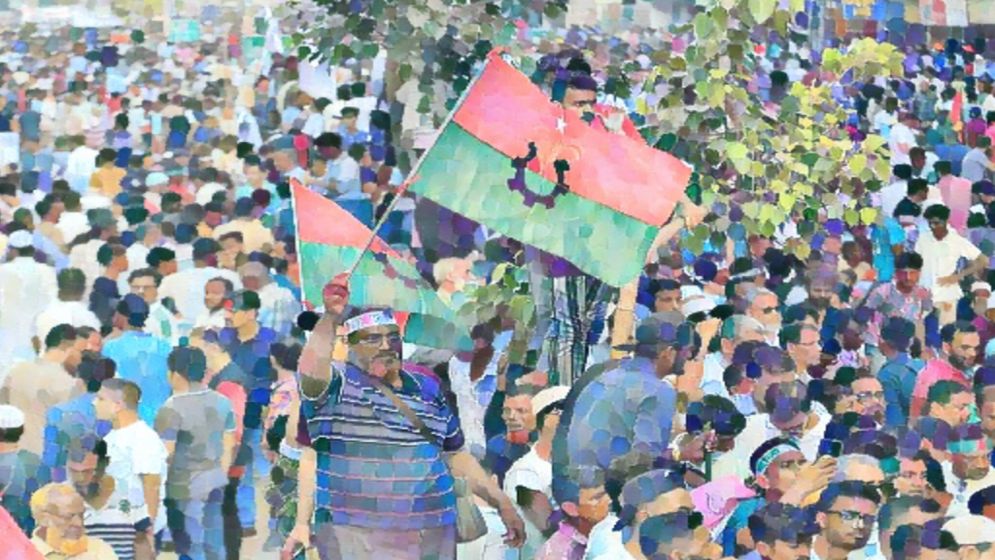With protests and ultimatums, BNP pressures interim government

Tensions are mounting in Bangladesh as Bangladesh Nationalist Party (BNP) intensifies its campaign against the interim government headed by Nobel Peace Prize laureate Professor Muhammad Yunus.
Once seen as a stabilizing figure in the wake of last year’s mass uprising that ousted the Awami League, Yunus is now at the center of a growing political storm over delayed elections and the scope of his transitional administration.
The BNP, now the country’s largest political bloc, accuses the interim government of exceeding its mandate by stalling national elections under the banner of institutional reform.
The party’s senior leadership has issued increasingly pointed warnings, framing the delay as a threat to democratic norms.
“Professor Yunus is a globally respected figure,” Salahuddin Ahmed, a senior BNP official, told a crowd of supporters during a charged speech last week. “But with that respect comes responsibility. The promise to hold elections by December must be kept. Justice and reform cannot be used as tools to obstruct democracy.”
The pressure campaign has played out both in political forums and on the streets. BNP loyalists have mobilized across major urban centers, including the capital, Dhaka, where demonstrations have disrupted daily life.
Protesters brought traffic to a standstill at Shahbagh intersection last week following the death of Shahriar Alam Sammo, a student activist affiliated with the party’s student wing, Jatiyatabadi Chhatra Dal (JCD).
The circumstances surrounding Sammo’s death on the Dhaka University campus remain under investigation, but the JCD has accused the authorities of deliberate inaction and vowed to escalate protests unless arrests are made swiftly.
The interim government was initially welcomed as a neutral arbiter tasked with overseeing credible elections and implementing limited governance reforms.
But BNP officials now fear the administration’s reform agenda may be expanding into an indefinite hold on electoral transition—something they say the country cannot afford.
“Every delay chips away at public trust,” a BNP insider said, speaking on condition of anonymity to discuss internal strategy. “The government was never meant to linger this long.”
Political analysts note that while Yunus enjoys significant international support, his domestic standing is increasingly under strain. Street-level agitation by BNP supporters, often large and occasionally disruptive, has added pressure to an already fraught political environment.
BNP activists meanwhile have laid siege to Nagar Bhaban—the headquarters of Dhaka South City Corporation—this week, demanding the installation of BNP leader Ishraque Hossain, who claims to have won the mayoral race.
The sit-in has paralyzed administrative operations for several days, amplifying frustrations among city officials and residents alike. On Tuesday, the protest took a confrontational turn as Hossain’s supporters issued a sharp ultimatum: unless he is sworn in by May 21, they vowed to disrupt essential civic services, including electricity distribution and waste management.
Protesters erected a makeshift stage outside the building and declared their intent to return daily until their demands are met.
Their list of grievances has also expanded to include calls for the resignation of Asif Mahmud, an adviser to the caretaker government whom they accuse of obstructing the democratic process.
“What we are witnessing is a slow drift,” warned BNP Secretary General Mirza Fakhrul Islam Alamgir in a statement on Tuesday. “In exchange for the blood and sacrifice of thousands of students and citizens, we have a rare chance at real democracy. But now, a new shadow is being cast upon that hope. There appears to be a plot to derail the national election.”
Professor Yunus, who has so far refrained from responding directly to individual demands, maintains that reforms are necessary to secure the credibility of future elections.
Rushing the process, he argues, could unravel the fragile calm achieved since the Awami League’s ouster.
—

